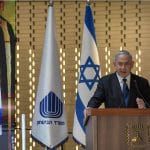Not our neighborhood?
By Bruce Cumings | June 12, 2018

In the late summer of 1880, Korean envoy Kim Hong-jip spent several weeks in Tokyo consulting with Japanese and Chinese diplomats. On September 6, Huang Zunxian, a counselor in China’s mission to Tokyo, presented him with a radical proposal called “A Strategy for Korea.” Korea could no longer maintain its seclusion policy, he said. It needed to buy time to strengthen itself, and new alliances were the answer—following a novel concept called “the balance of power.” Russia threatened Korea, but Japan—while preoccupied with reform for the time being—was the real future danger. Meanwhile the United States, Huang thought, “has always upheld justice” and had never allowed the European powers “to freely perpetrate their evil deeds.” If that might not turn out to be true, at least the United States was well across the Pacific, minding its own business. Huang therefore recommended that Korea remain intimate with China, associate with Japan, and form an alliance with the United State—which could be furthered by negotiating a treaty of mutual benefit.
And so they did in 1882, with much Chinese help. (Fun fact: China actually designed the Korean flag in 1882, now the flag of South Korea, says Kim Key-hiuk in The Last Phase of the East Asian World Order). The alliance did not come until 1950, but Huang’s proposal had a profound influence on the Korean king, Kojong, and marked the start of Korea’s modern diplomacy.
For a quarter-century the North Koreans have been pregnant with an idea whose time never came—perhaps until now. That idea was to somehow draw the United States in to solve Pyongyang’s profound isolation and vulnerability, after the Soviet Union collapsed and China opened a broad relationship with South Korea. It was never easy to discern this—and hard for the North to say it out loud—amid their limitless farrago of anti-American propaganda. But it was a central if unspoken part of their diplomacy with Washington in the 1990s.
Their strategy almost worked in the last two years of the Clinton administration, which had frozen the North’s entire plutonium complex in 1994, and was on the verge of an indirect buyout of North Korea’s medium and long-range missiles in December of 2000 in return for normalization of relations with the United States. However the incoming George W. Bush administration in general and John Bolton in particular quickly made hash of that remarkable breakthrough. As Nicholas Kristof pointed out in his New York Times OpEd of May 24 of this year, “Bolton is smart and well-informed, and he hit the trifecta: On Iraq, Iran and North Korea alike, he has a perfect record of disastrous decisions. He was a champion of the invasion of Iraq, he helped kill nuclear deals with Iran both 14 years ago and again this year, and he helped destroy an agreement with North Korea in 2002 in addition to derailing the latest summit plan.
If there were a Nobel Prize for Distinguished Warmongering, Bolton would be a shoo-in.”
In the midst of this process another crucial idea emerged: At their first summit in 2000, Kim Jong-il told South Korean president Kim Dae-jung that he would not object to the stationing of American troops in the South, even if the long reconciliation process that the two of them had launched eventuated in reunification. Meanwhile Secretary of Defense William Cohen indicated to Kim Dae-jung during the latter’s 1998 visit to Washington that American troops would remain in Korea even after unification—a striking statement that almost nobody paid attention to at the time. Why? Keeping American forces would give Korea a lot of heft in fending off its great-power neighbors, and from Washington’s point of view, help to contain China. Had this breakthrough come to fruition, North Korea would have joined the world within the existing Northeast Asian security system that the United States had built since 1945.
The North has always seen its nuclear program as a hole card to somehow cope with the greatest power on earth breathing down its neck, because to use that arsenal would mean regime suicide. But Kim Jong-un took matters to a head last fall, busting off a hydrogen bomb and an ICBM capable of reaching most of the United States. All of a sudden he had a royal flush. But what cards did he lay on the table this year? His New Year’s address called for reconciliation with the South, and implicitly for an opening to the United States. Six months later “little rocket man” is hobnobbing with Xi Jin Ping, Putin, and most improbably of all, Donald Trump. Up to this point at least, one has to judge it a remarkable performance.
More remarkable, perhaps, is South Korean president Moon Jae-in’s role. He seized on Pyongyang’s willingness to attend the Pyeongchang winter Olympics to begin a diplomatic process that has culminated in the Singapore summit—he is the one, after all, who told Trump about Kim’s interest in meeting with him. Less obvious was Moon’s statement while visiting Xi Jin-ping last winter, that the United States was an ally but Japan was not—a fact for decades, but one rarely voiced. It might have been an addendum to Huang’s memorandum—and note that today Japan is on the outside looking in.
It may be hard to understand that North Korea has always chafed at America’s unwillingness to recognize it—to give it the respect and dignity that is at the core of its ideological system of chuch’e, or self-reliance. Whether Washington is finally willing to do that now, 70 years after the regime was founded, is still unclear. Trump recently said that “That’s their neighborhood; it’s not our neighborhood,” and rumors in Washington suggest that he wants to withdraw US troops from the South. But Kim Jong-un seems no longer to care about expelling those troops; instead he appears willing to follow the Counselor’s advice—which Huang summed up in a pithy, typically Chinese phrase: qin Zhong, jie Ri, lian Mei: stay close to China, associate with Japan, ally with America.
Together, we make the world safer.
The Bulletin elevates expert voices above the noise. But as an independent nonprofit organization, our operations depend on the support of readers like you. Help us continue to deliver quality journalism that holds leaders accountable. Your support of our work at any level is important. In return, we promise our coverage will be understandable, influential, vigilant, solution-oriented, and fair-minded. Together we can make a difference.
Topics: Uncategorized














